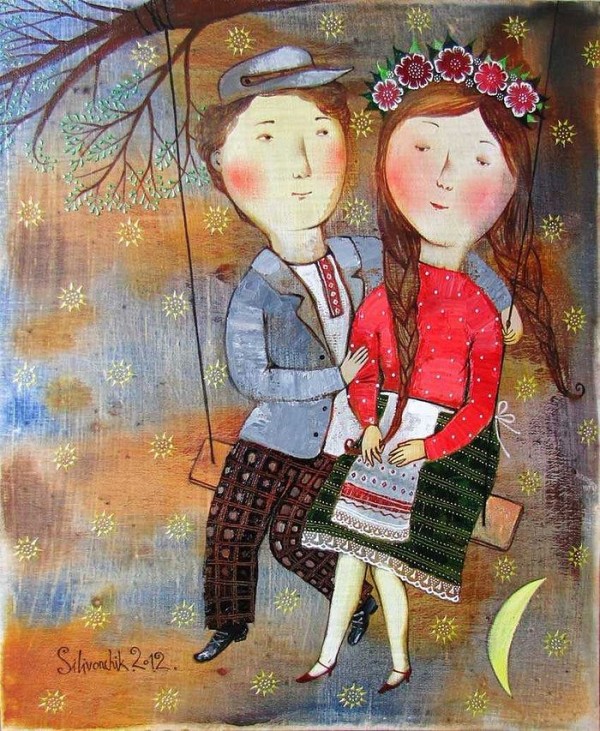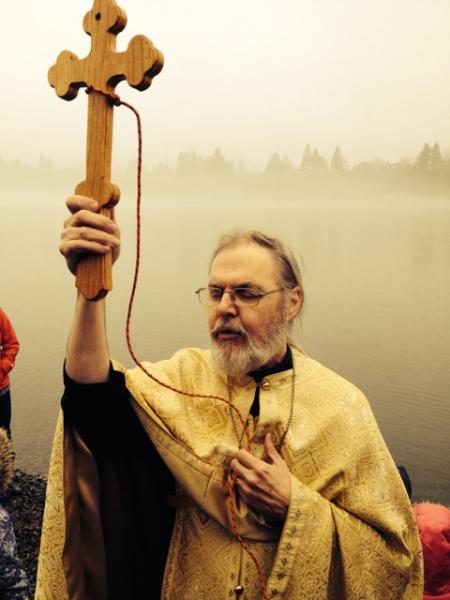 Archpriest Lawrence Farley is pastor of St. Herman’s Orthodox Church (Archdiocese of Canada, OCA) in Langley, BC, Canada. Fr. Lawrence is the author of the Orthodox Bible Study Companion Series from Conciliar Press and a number of other books and articles, and also the host of a daily podcast on Ancient Faith Radio. He has also been an occasional contributor to Pemptousia, the online journal of Vatopaidi Monastery on Mount Athos.
Archpriest Lawrence Farley is pastor of St. Herman’s Orthodox Church (Archdiocese of Canada, OCA) in Langley, BC, Canada. Fr. Lawrence is the author of the Orthodox Bible Study Companion Series from Conciliar Press and a number of other books and articles, and also the host of a daily podcast on Ancient Faith Radio. He has also been an occasional contributor to Pemptousia, the online journal of Vatopaidi Monastery on Mount Athos.
In the secular west coast of Canada, Christians of any description are a distinct (and to some degree an embattled) minority, which makes devout Orthodox Christians even scarcer here. I consider that my priestly and pastoral task involves not so much offering available spouses to my single parishioners as offering them sound advice. If a single person in my flock were hoping to build an Orthodox marriage, I would counsel the following.
- Settle it in your mind at the outset that your main goal is not marriage, but holiness. Your sense of wellbeing and completeness is rooted in your relationship with Jesus Christ, not in your marital status. If you are looking for a marriage partner because you think that marriage will make you happy or complete you, you will be disappointed, and are in fact a poor candidate for marriage yourself.
- Do not date non-Christians. St. Paul flatly forbids Christians to marry outside the Faith (1 Cor. 7:39), and missionary dating (i.e., dating someone in hopes of converting them to Christ) rarely bears fruit. Odds are that the person, if they covert to Christ and His Church, will do so only nominally and superficially, with the result that you will not have an Orthodox marriage anyway. Make it an unbreakable rule: never marry anyone who does not love Jesus more than they love you.
- Let your dating partner know at the outset of the relationship that you will never marry anyone who is not a devout Orthodox Christian. Marrying a non-Orthodox Christian and hoping that they will somehow convert to Orthodoxy in the future is a fool’s game. By not insisting upon Orthodoxy at the outset, you have already told your partner that it is not really that important. That being so, why should they convert? The true cost of building such ecclesiastical division into the marriage will come when you have children. To which church will they go? And if they go to the Orthodox Church with one parent, how will you explain why the other parent does not accompany them? Such an arrangement tells the children that choice of church (i.e.. Orthodoxy) is not really that important.
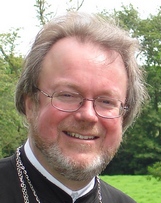 Archpriest Gregory Hallam is Dean at the Antiochian Orthodox Deanery of the United Kingdom and Ireland and priest at St. Aidan’s Orthodox Church in Manchester. He has a blog entitled Antioch Abouna and a podcast on Ancient Faith Radio called A Voice From the Isles.
Archpriest Gregory Hallam is Dean at the Antiochian Orthodox Deanery of the United Kingdom and Ireland and priest at St. Aidan’s Orthodox Church in Manchester. He has a blog entitled Antioch Abouna and a podcast on Ancient Faith Radio called A Voice From the Isles.
In the UK, it is simply a matter of demographics that there are going to be problems if Orthodox believers limit their social interactions when thinking about suitable Orthodox marriage partners. It is estimated that there are perhaps 300,000 Orthodox believers in the UK. If perhaps a quarter of these were eligible for marriage, those 75,000 are going to be spread thinly across a country of nearly 70,000,000 inhabitants.
Clearly, the chances of finding a suitable Orthodox marriage partner would be enhanced if those 75,000 were to sign up in any significant numbers to an Orthodox online dating agency. Limiting this to parish memberships would not really help the situation. Perhaps this is another opportunity for Orthodox bishops to cooperate in setting up such a service!
As for my advice in guiding someone seeking to date a non-Orthodox person, heterodox Christian, or non-Christian, my advice is much the same and consists mainly in addressing these questions:
Can you live with spiritual disunity in your family? Is your non-believing partner supportive of you practicing your faith? Is he or she prepared to have children from the marriage brought up as Orthodox Christians?
If the answer to all these questions is “yes,” then the Church’s pastoral economy would allow such a marriage. Radical honesty, however, about such matters is vital. True love cannot afford to be sentimental about such things. Clear sight and clear thinking are required.
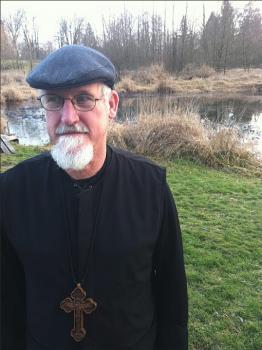 Archpriest Michael Gillis serves at Holy Nativity Antiochian Orthodox Church in Langley, BC, Canada. He has a blog entitled Praying in the Rain and a podcast with the same title.
Archpriest Michael Gillis serves at Holy Nativity Antiochian Orthodox Church in Langley, BC, Canada. He has a blog entitled Praying in the Rain and a podcast with the same title.
I usually have two pieces of advice for those who are seeking an Orthodox Christian spouse. The first bit of advice is for everyone: If you want to meet an Orthodox Christian who will make a suitable spouse, you have to become active in the Church. You will not meet a good Orthodox Christian by hanging out in sports clubs, discos, or coffee shops. If you want to find a good Orthodox Christian, you have to be a good Orthodox Christian. Certainly, there are also dating websites, and I do not forbid these, but watch out! It is very easy to be deceived. It is very tempting for some people to misrepresent themselves on dating websites, and if you are not very careful, you can be hurt badly when you find out that the person you have met and have begun to fall in love with is not the person he or she said they were. However, if you go to church services, visit monasteries, and become involved in charitable projects sponsored by the Church, you will meet many new people. These will be people who love the Church, people who are not pretending to be religious, but who actually live their faith. Your chances of finding a suitable Orthodox spouse are greatly increased as you increase your involvement in the activities sponsored by the Orthodox Church.
The second bit of advice that I give to those seeking an Orthodox Christian spouse is less practical, but more spiritual. Unfortunately, many young people mistakenly think that the problems they encounter as they search for a spouse are mostly practical ones. Consequently, I always begin by giving them practical advice. However, in my experience the real problem is not actually practical, but spiritual. The spiritual problem is that most people want to be in control of their own lives. They don’t want to surrender their lives to God as a living sacrifice. They don’t trust that God cares for them and wants the best for them. They perhaps do not really believe in God at all, not practically, not in the God Who loves us so much that He became one of us.
Too many Orthodox young people spend a good deal of their life pursuing their own agendas, their own goals, and seeking their own happiness. Sure, they are somewhat religious. Sure, they believe in God in an abstract sense: a God far away, a God Whom they can ignore much of the time. However, finding a suitable life partner is a serious matter. Suddenly now they experience a crisis. They realize that finding a suitable spouse (Orthodox or not) is much more difficult than they had imagined. And this crisis, as many crises are, is a test. Will they trust in God or not? Will they entrust their life to the One who loves them most? Will they turn to God, entrusting their life to God, realizing that the purpose of their life is not the pursuit of happiness, but the pursuit of God? And here, at this point of spiritual turning, a good priest or monastic can be very helpful. The goal of every Christian life is transformation, and the sooner we start to take our transformation in Christ seriously, the easier it will be for us to find our path in life.
The difficulty one encounters in finding a suitable Orthodox Christian spouse can become an opportunity for spiritual transformation. Yes, there are still practical aspects to finding a spouse, and the first bit of advice still applies to those who will look deeply enough into themselves to attend to the second bit of advice. But in the end, spiritual transformation – we might even say martyrdom – is what Orthodox Christian marriage is all about.
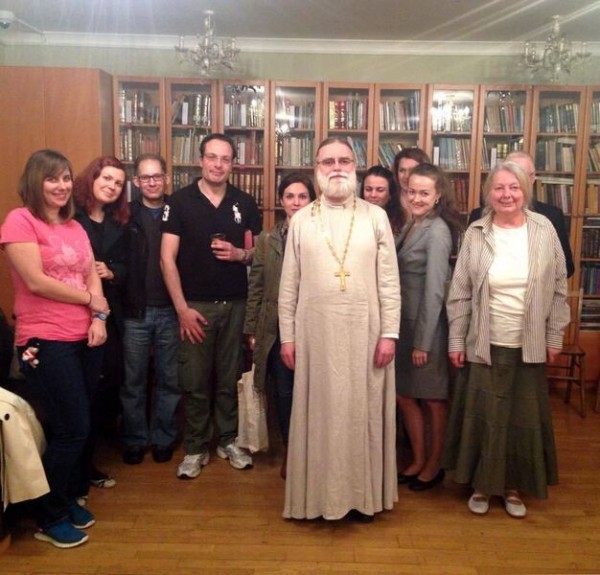 Archpriest Joseph Skinner is Rector of the Orthodox Parish of St. Silouan of Mount Athos in Southampton (Diocese of Sourozh, Moscow Patriarchate).
Archpriest Joseph Skinner is Rector of the Orthodox Parish of St. Silouan of Mount Athos in Southampton (Diocese of Sourozh, Moscow Patriarchate).
It is hard for Orthodox people to find an Orthodox spouse in Western countries, simply because we are a small minority. Apart from that, the great majority of those who are formally Orthodox are not churched, and are therefore likely to share the presuppositions of the surrounding secular society about relationships and family life.
A priest shouldn’t try to be a matchmaker, but he should encourage young people to look for potential spouses within the Church community. There was a time in our own parish when there were no marriages between parishioners. It was as if people didn’t think the Church was the place for that sort of thing. Fortunately, that has begun to change, but marriages between people who both truly belong to the Church are still the exception rather than the rule. When they do happen, though, the weddings have a very special, almost triumphant, character, like a coronation. Ultimately, healthy church communities will produce true Church marriages.
It happens quite often that our young people enter into relationships with non-Orthodox, or even non-Christians. One has to explain that the ultimate purpose of marriage is the spiritual union and joint salvation of husband and wife, and that that presupposes a common faith. Sometimes the non-Orthodox partner is open to the idea of accepting Orthodoxy, and occasionally becomes a really committed member of the Church. We do not insist on that as a condition for marriage, however, provided that the person is baptized in a Christian community that clearly confesses belief in the Holy Trinity.
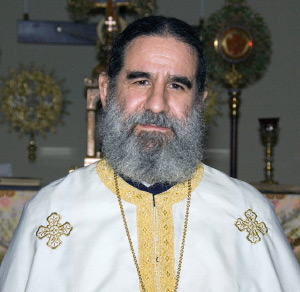 Protopresbyter Panayiotis Papageorgiou, Ph.D., serves at Holy Transfiguration Greek Orthodox Church in Marietta, GA. He is a regular contributor to Orthodoxy and the World.
Protopresbyter Panayiotis Papageorgiou, Ph.D., serves at Holy Transfiguration Greek Orthodox Church in Marietta, GA. He is a regular contributor to Orthodoxy and the World.
Over the years I have encountered almost every possible combination of situations regarding marriage, both in the USA and in Cyprus, where I served as a parish priest. It is difficult everywhere for young people who want to live the life of the Orthodox Church in their marriage to find compatible spouses, because the world has changed and continues to change tremendously into a progressively more secular one. Secularism, materialism, and atheism are the main challenges for Orthodox young adults seeking a spouse. In addition, in a society such as the US, problems are multiplied as young adults fall in love with persons coming from non-Orthodox or non-Christian groups.
Each situation, of course, has its own challenges, but there are some cases that are extremely difficult, such as when people are engaged to non-Christians. In these cases we are completely unable to help, unless the other party decides to be baptized and join the Orthodox Christian Faith.
Other cases can present serious difficulties as well, even if the other party is a baptized Christian, when they are unwilling to have an Orthodox marriage service, or if they are expecting the Orthodox party to join their church.
We can also be faced with serious issues even if the non-Orthodox party agrees to an Orthodox wedding service, but wants to baptize and bring up the children in their own tradition. We also have cases in which the non-Orthodox party agrees to baptize the children in the Orthodox Church, but wants to bring them up in their church.
In all these cases, I would advise the Orthodox person to contact their priest early on in the relationship and to have some serious conversations about the issues of marriage and family. The earlier you have this conversation, the easier it will be to make an informed decision.
Meeting with an Orthodox priest is also very important so that the non-Orthodox person will have a chance to see the priest’s reasonable and pastoral approach (which may be far more reasonable than that of either of the families involved).
Meeting with an Orthodox priest can also give a chance for the non-Orthodox person to learn what the Orthodox Church is really about and to receive a better understanding of Church history and the theology and spirituality of Christianity as it is uniquely preserved in the Orthodox Tradition. This has been for me one of the major arguments why they should seriously consider joining the Orthodox Church, and one that has won many people over.
Yes, some priests may have the ability to match young people with one another, but not everyone can or is willing to do this. Yes, one can also create a young adult group that will facilitate young people meeting for the purpose of finding a spouse, but in my experience that never works very well. Young people usually distance themselves from the Church and return with the person they have connected deeply with when they are finally ready to tie the knot. All the issues have to be dealt with at that point.
In my experience, the most effective way to get young people to meet are the regular Metropolis and/or Archdiocese activities that transcend parishes and states. These help broaden the encounters and tend to provide a greater opportunity for connecting young people, but there is no guarantee they will work for everyone. We should perhaps begin to rely more on the Grace of God.












